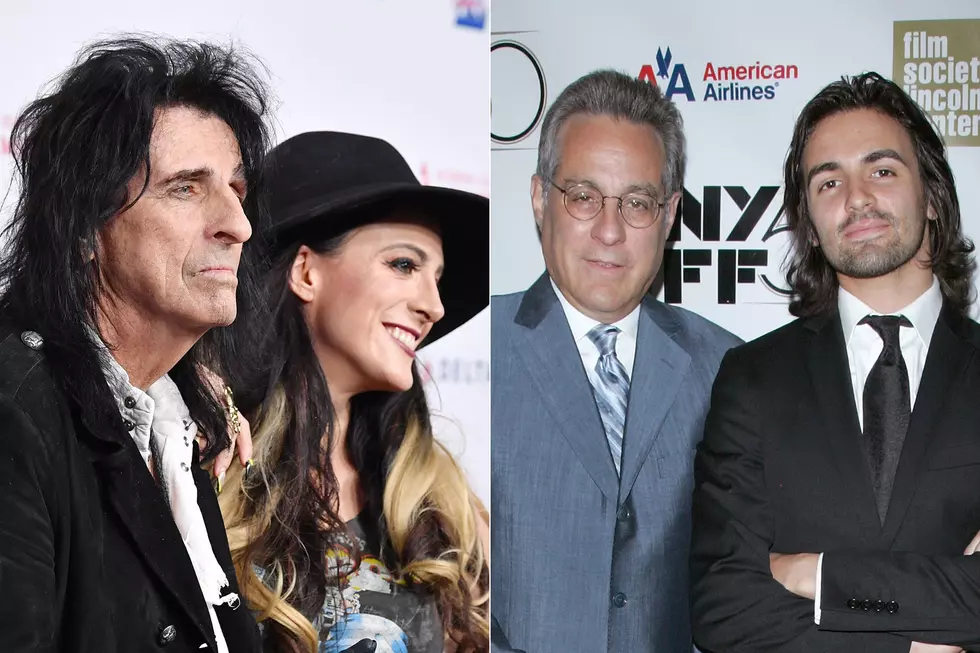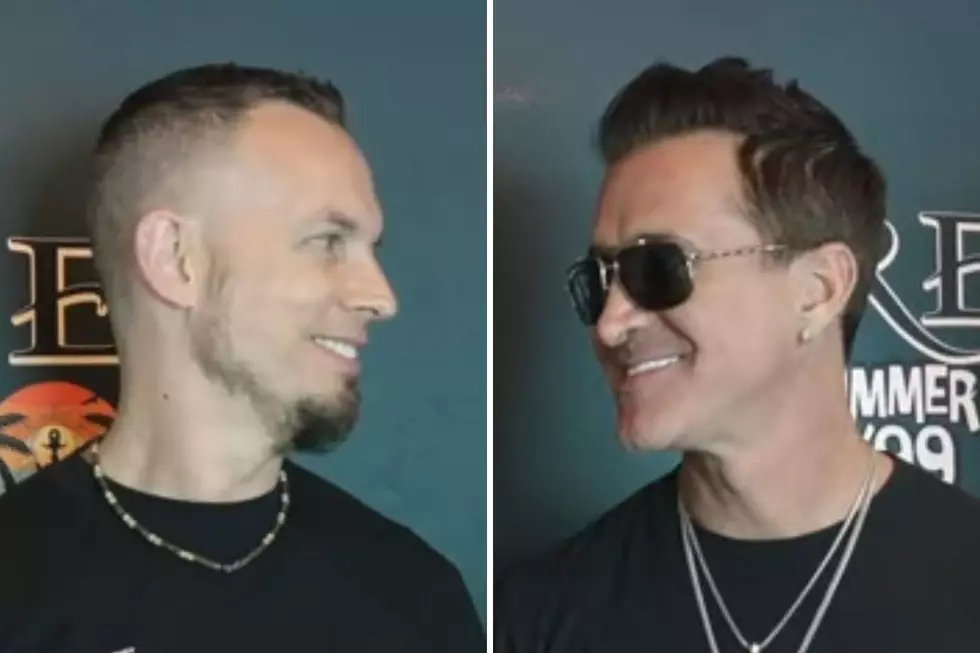
Fearless Co-President Jenny Reader Has Advice for Bands, Industry Hopefuls
You're familiar with the concept of a mailroom employee at a company working their way up to CEO. That's not the exact tale mirrored by Fearless Records Co-President Jenny Reader, but she's dangerously close.
This wasn’t a predetermined path as Reader earned a degree in design and media management with a focus on photography. Her schooling not only focused on the creative craft, which was what truly drove her interests, but how to make and manage a business out of this craft.
Initially, her post-college pursuits landed her a role as a publicity assistant for Hyatt Hotels. Equipped with a knack for writing and a yearning to travel, Reader transitioned into the world of magazines, ultimately climbing the ladder to become an editor of a children’s magazine. “I swear too much now to be associated with that,” admitted Reader.
Continuing her vagabond career prior to her trans-Atlantic move and scratching the nagging itch to work in the music industry, which she was most passionate about, Reader wedged her foot in the door through freelance work as more of a passion play than putting a career in music in her crosshairs.
It wasn’t long before Sky TV, a group of collective channels designed to rival MTV, recognized her talents and drive, enlisting her for content creation for one of their three music channels, which was rock-centric. "I couldn't have applied for that job," says Reader, who viewed the work as merely helping out a friend.
While she could rightfully beat her chest, it’s likely her humility is what has kept her in the game for so long and at such a high level. “I feel like I am a bit like Forrest Gump sometimes,” she confesses. "I’m just in that position of right place, right time and it just seems to be massively virtuous."
Switching companies yet again, Reader finally broke into the inner circle, landing a job at Victory Records. In 2009, she joined Fearless Records as a publicist, leaving England for America. Fast forward 10 years and Reader was recently promoted to co-president of the record label, alongside Andy Serrao.
From there, we discuss other entry points for people looking to break into the music industry, what Fearless Records looks for when signing new bands and how I Prevail and Starset are leaders in the Wild West of the digital music world.
If you’re in a band with global aspirations or a passionate music fan looking to leave your mark in the industry, take note of what’s below.
The entry point into the music industry always seems to be that you have to know somebody. Freelance work is a great way for people to get their foot in the door. What other entry points are there?
It is super vast with so many different jobs. Half the challenge is trying to figure out if you really love music and what part of it do you really want to do? Try a bit of everything. Volunteering or being an intern is a valuable because you’re going to meet people. You've just got to prove yourself invaluable in whatever position you take on.
From my side, when I was freelancing, I actually stepped in physically to help out at these music channels. I wasn't really looking to gain employment. I would just say, 'Yeah, I've got time during the week.'
You’ve got to be prepared to work and not necessarily think that there's an end result of getting a job. Use that opportunity to meet people.
Passion is really at the core of this industry and drives it.
Yes! That's it.
Before you were promoted to co-president of Fearless, you were the VP of marketing and product management. What did this entail?
My day-to-day role and the reason why I like the idea of being a product manager is that you get to touch everything. You physically get to be involved in all aspects of an artist's career within a record label and their album campaign or it could be a single for the campaign.
What I liked about it in my role was that I was able to be involved from the moment a band starts coming up with a concept for an album to them being in the studio creating the vision to what the album should be.
Being an indie label, you can't just rely on what would be traditional drivers such as late night television. There are not many magazines to be on the cover of anymore. Not having massive budgets puts you in a position where you have to get more creative with it.
We're in the middle of a sea change right now: The physical product is on the way out, vinyl is still gonna have its own place, but beyond that point, you're in a moment where there's no real right or wrong answers on how to do anything. You're basically just experimenting sometimes, which doesn't mean to say you're making it up. There's definitely a real strategy.
When you're looking to sign a new band, what indicators are you looking for? Obviously the music has to click, but are you looking for bands who've done self-produced videos, DIY tours, have strong social media engagement?
When an A&R team is going out there and looking for bands, they're looking for potential. You can see it first with streaming numbers — there’s a reaction. You're not just looking at the amount of plays you get but the amount of engagement and followers that band has.
Having a team and infrastructure around them is important. We're beyond the point unfortunately where we can sign something I would call a band at “minus one.” That doesn't mean to say they've got no potential, that just means they're completely starting out from scratch.
We have to have something where they have to be ready to be able to take that next step: They've connected with other artists, they’re able to get tours and can generate a bit of a buzz on their own.
When assessing new bands, outside of the music, are you also looking for a person in the band who is charismatic and can shine doing press and onstage?
Some of that comes with time and experience. There is always the spark of something special about an artist and there should be some level of charisma. It could be any member of the band. It does not need to be radical — you don’t need to be the most dangerous band.
The running theme with our successful bands is the sense of identity. It's almost the biggest driver with any level of success.
The band who are not sure and playing around musical styles — you are allowed to experiment over the years, but you have to kind of go in with conviction.
What is the biggest band that you had personally had a hand in breaking?
Motionless in White are one. When they came to us, they knew what they wanted to be and Chris [Motionless] is incredibly driven. I was very hands on in working with them — carving their identity, their visual presentation, all the stuff that we did together was probably one of my favorite bands to work ever.
I Prevail right now. That thing is about to explode, it's going to be massive. Although I give all the credit to them. They are extremely good at marketing themselves. They understand the digital aspect of everything more than any band.
What are they doing different in the digital space?
So, this is a band that they've started out as its own self-entity and had an amazing tap on how to not only identify fans that might be into them but then make them fans. They had and have an immensely strong understanding of digital marketing and how to find people that would be into their music, but know how to engage them and turn them into actual fans that would purchase their music (streaming wasn't as prevalent when they started). . At the time it was more downloads than anything else.
They would see themselves on the charts immediately, but their ability to use really strong analysis behind the scenes but also have a really firm tap on who their audience is going to be and also build it from the ground up.
We knew it was genuine from the amount of people buying things, then when you see it live, you can't make those things up. You've got an uncanny knack of understanding this demographic in a way that no one else does, but at the same time they also have a very good skill set within them that makes amazing music that people can relate to, I think. So it's a great combo.
They were one of the first to put out the metal covers of something that's completely not metal or heavy with the Taylor Swift cover. That speaks to understanding how the Internet works and what people are looking for regarding entertainment value and then they give them that entertainment.
Starset are a band that's got an extremely strong identity and a concept for a band and had incredible success themselves without any labels getting in there.
They started everything by basically giving fans music to make their own content. The word spread on what they were doing with a core fanbase that grew, and they've built the beginnings of a multi-faceted empire that's now gonna become a much larger entity this year. I think these bands that have a really great sense of self, just a really strong vision and then building the team around them to really get them there.
I Prevail and Starset are two prime examples of bands that are tuned in completely to where things are going rather than relying on the traditional aspects of what would boost a band's career or what would start it or what is expected of them. I don't think either really care about big flashy media, yeah they love it, yeah that's awesome but at the same time, they're much more attuned to catering for YouTube audiences or their social presence or streaming tracks than they are to anything else.
How do you decide when a tour cycle is over and when it's time for a band to start working on a new album?
You'll probably see some of that changing, especially in the next couple of years. You'll increasingly see that it's less about album cycles, which traditionally would be around two years depending upon who you are. You're going to start seeing a whole hell of a lot more in-between content. Like whether it's a bridge track, or whether it's remixes, etc. — they're basically fueling their streaming strategy.
I don't think the standard full length album is going go away — it's so embedded in what music is — but it also affords your band a little time to show off the identity that we spoke to. They could release an acoustic cover, or a song that maybe nobody would expect that band would listen to. That helps spread the reach as well. You see what Disturbed did with the "The Sound of Silence."
It seems to be the thing to have a cover song, especially within rock and it's been massively successful for many bands. It helps another association with a different kind of pop culture.
I don't necessarily personally encourage it, but I do think that having the ability to be able to portray bands in a different light and reach a different set of people through different content they're creating, which sounds kind of vague, but that's why you see acoustic covers.
My only concern is people are just going to put something out for the sake of it.
Forward thinking is a good way to wrap up here. Anything else to add, Jenny?
We're extremely artist friendly and we're very fortunate to do what we do. We want to push the boundaries in everything we do.
I would encourage everyone out there that wants to get into the music business — passion is the most important thing. then this place isn't for you. But if you are, embrace change and have great ideas... we need you.
Thanks to Jenny Reader for the interview. Follow Fearless Records on Facebook, Instagram, Twitter and YouTube and visit their website here.
2019's Most Anticipated Hard Rock + Metal Albums
More From Loudwire









